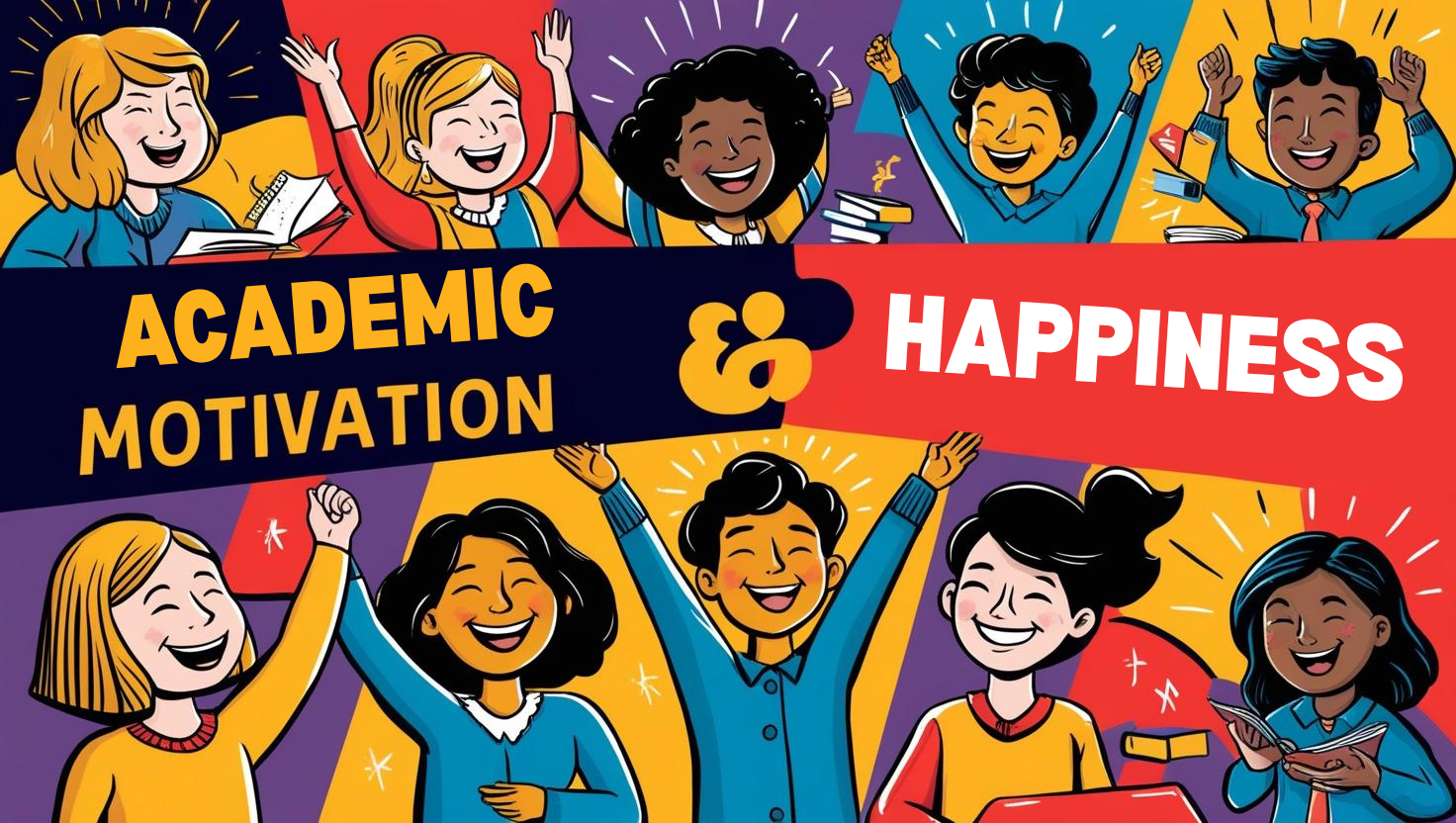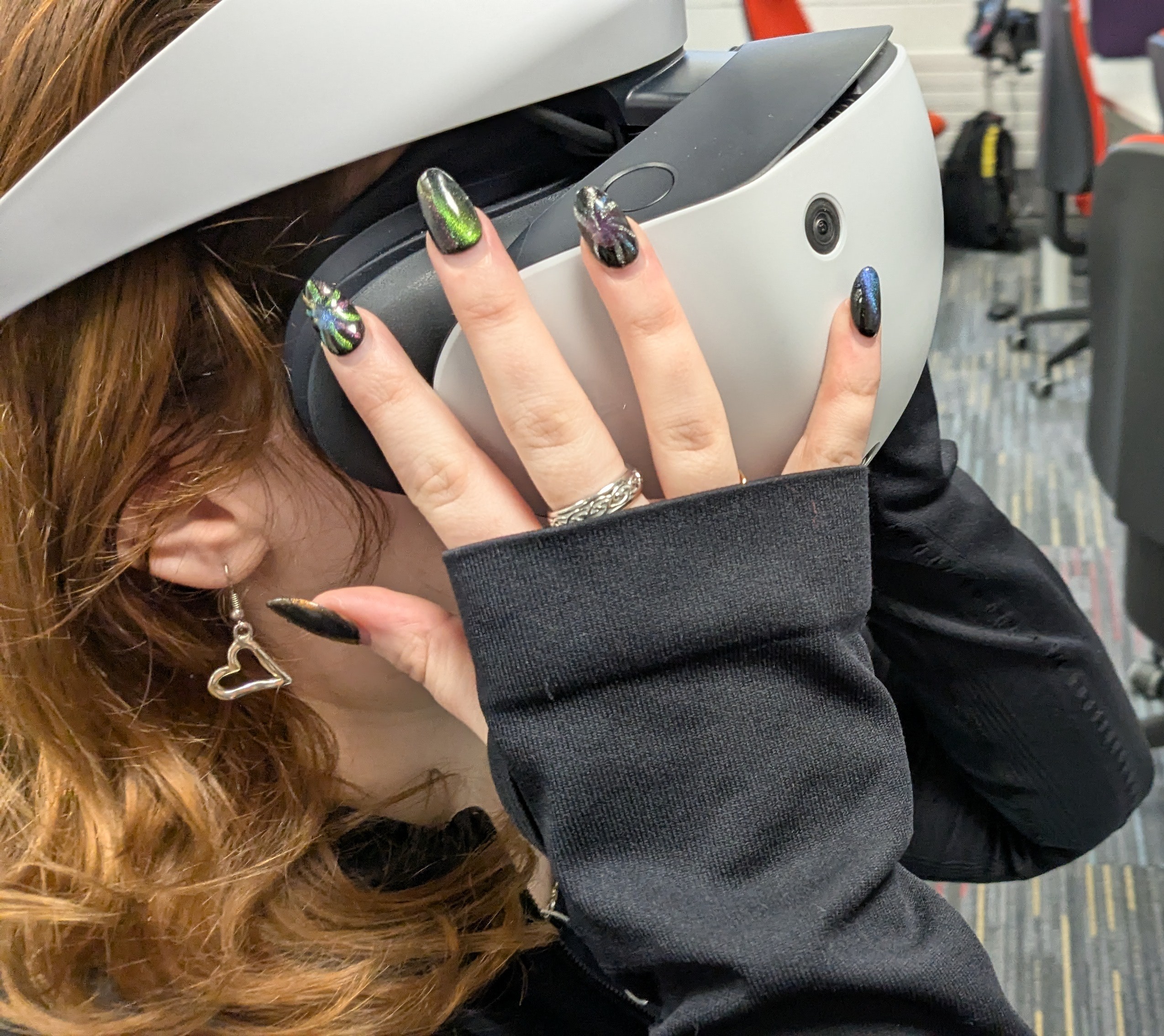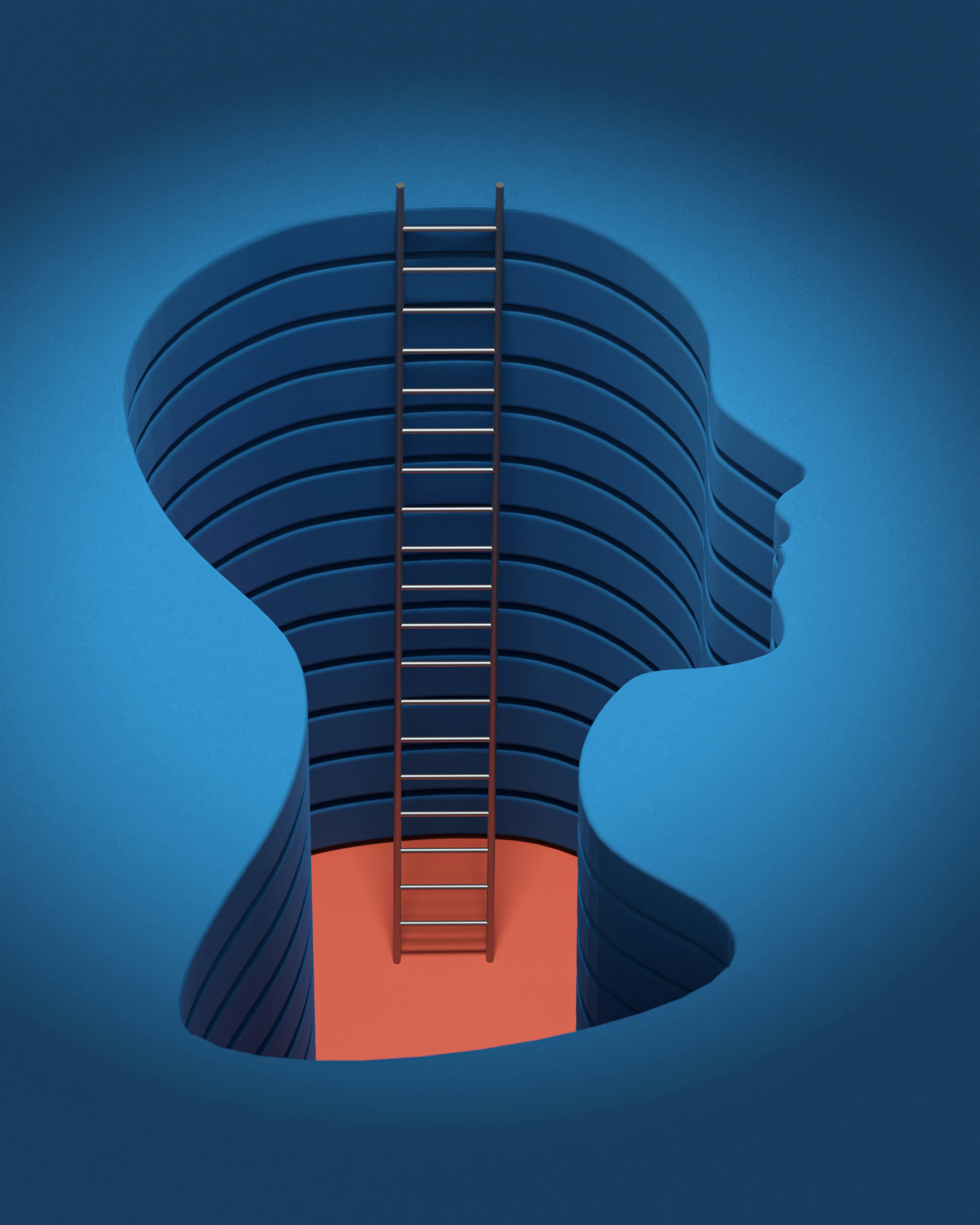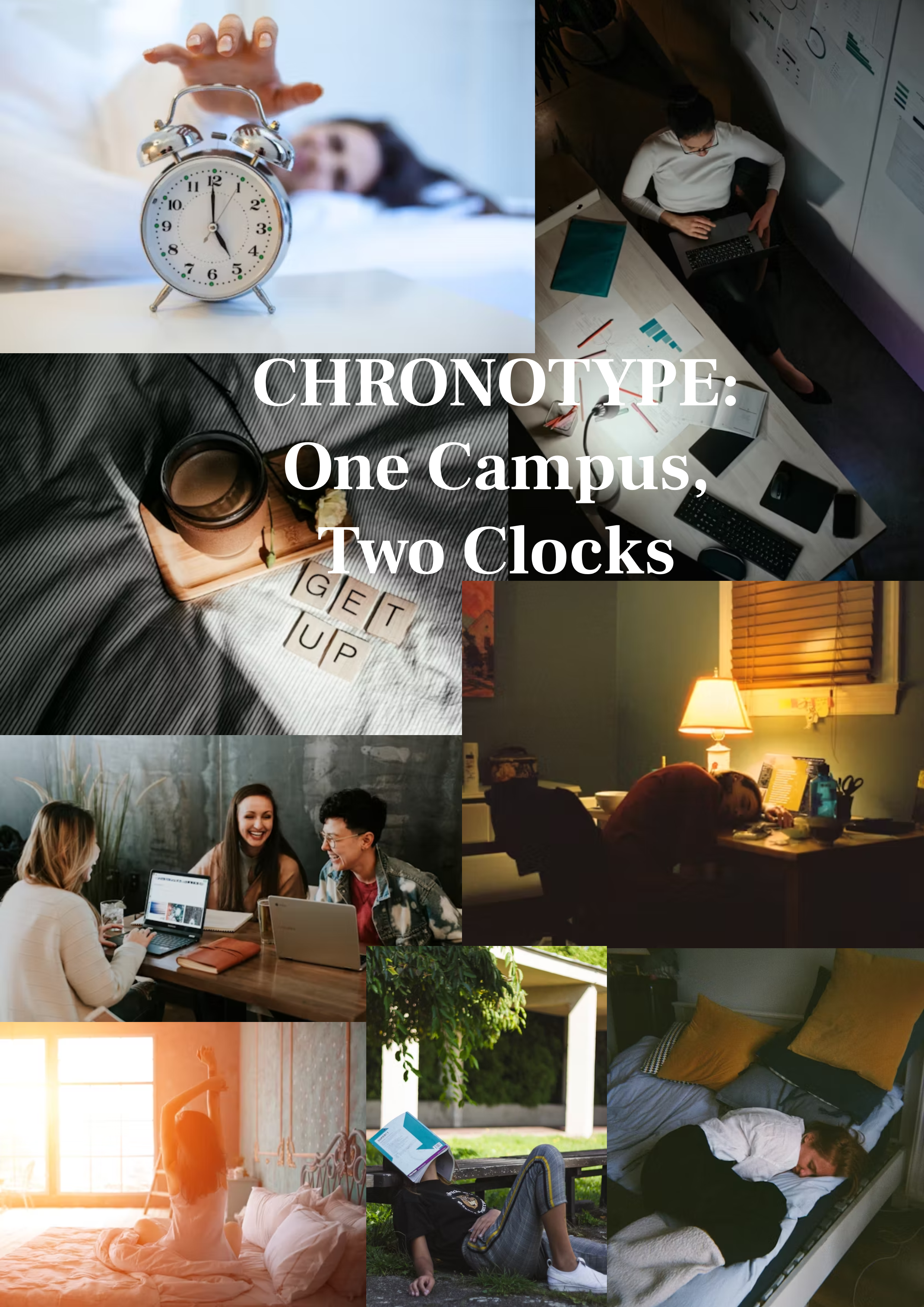
Alicia Stanley
In recent years, more attention has been drawn to how our natural sleep-wake cycles (chronotypes) affect daily life. Young adults often align with evening chronotypes due to academic and social demands, while older adults tend toward morningness, which is linked with better sleep, mood, and functioning. However, limited research explores how chronotype and gender relate to life satisfaction in Irish college students. This study included a sample of 115 undergraduate students. While no statistically significant effects or interactions were found, this study adds to research on how internal biological rhythms can influence well-being and daily functioning and the need for further research on student support strategies tailored to chronotypes.
Chronotype, Gender and Life Satisfaction in Undergraduates: Exploring the Role of Circadian Preferences
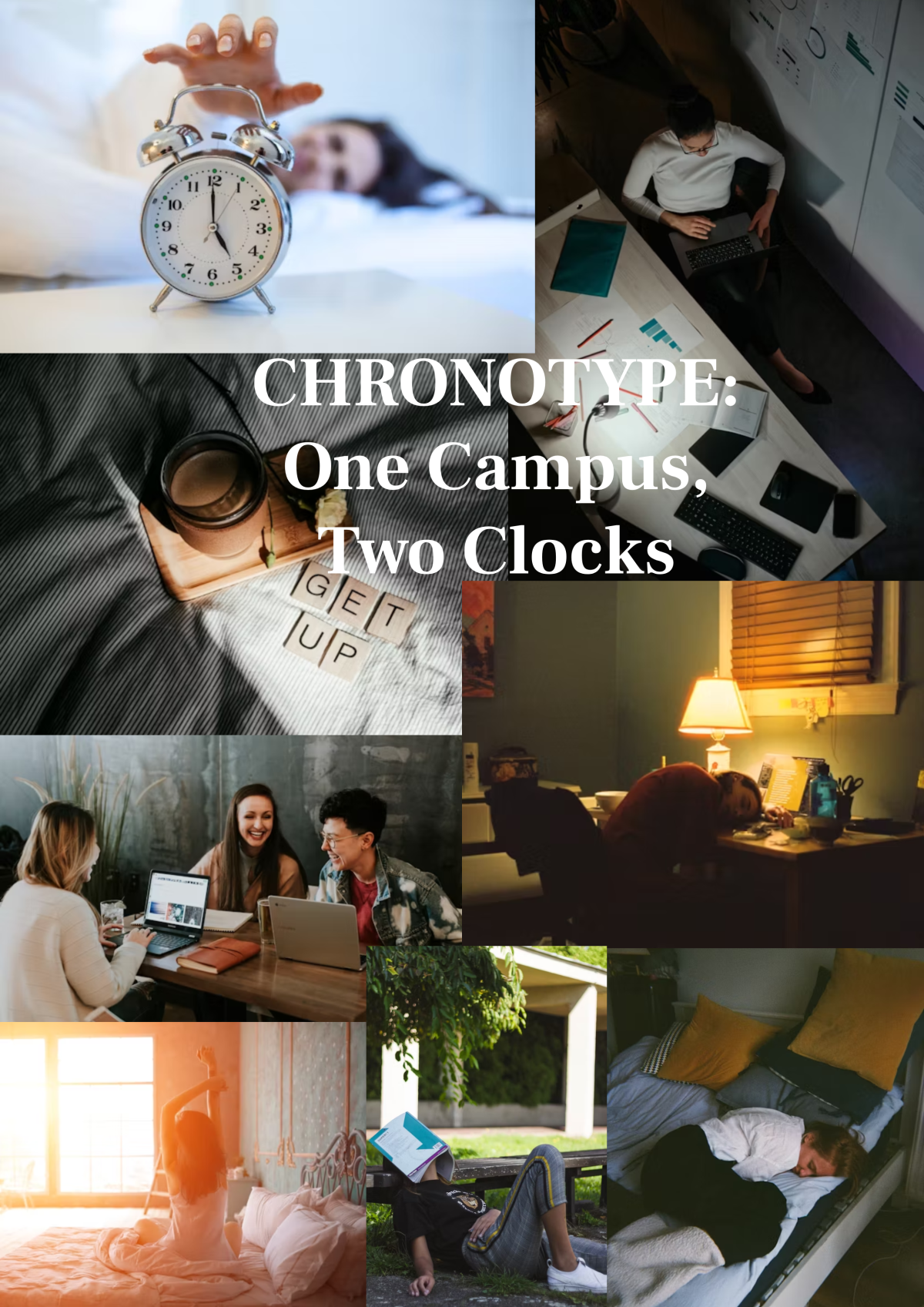
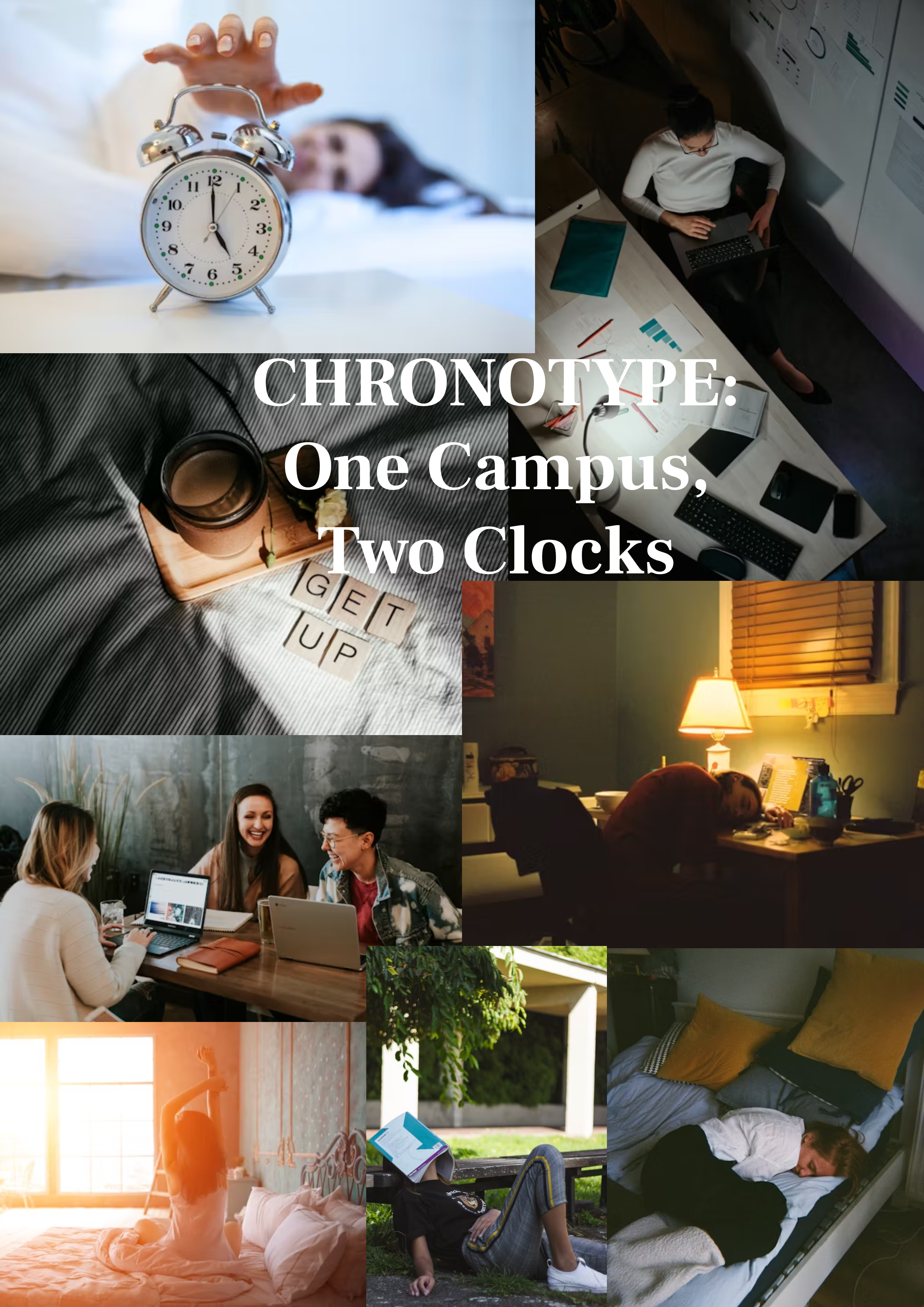
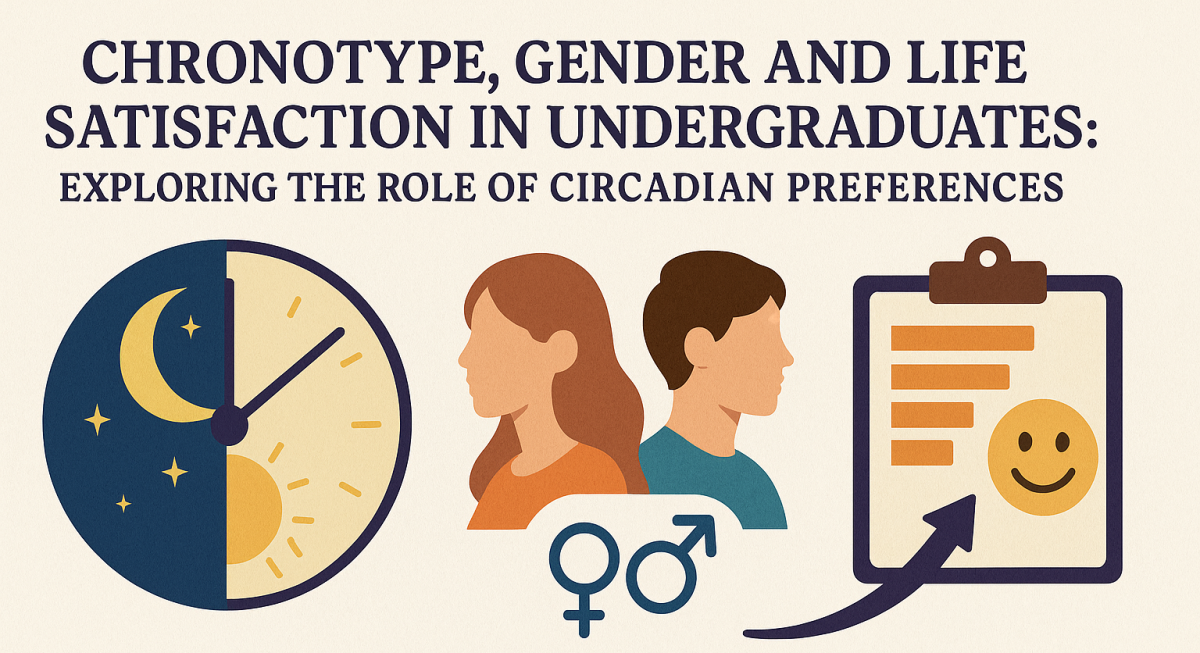
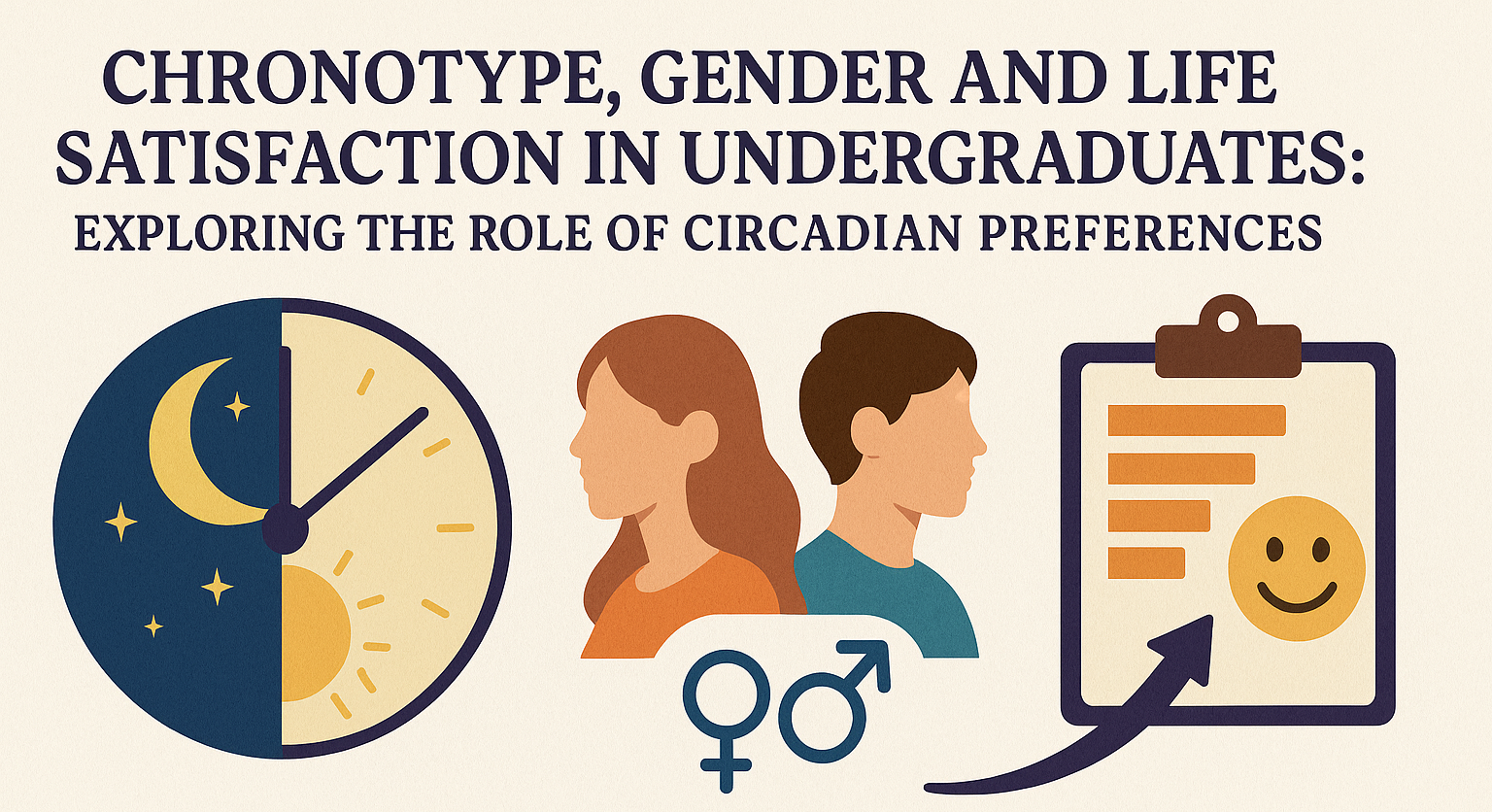
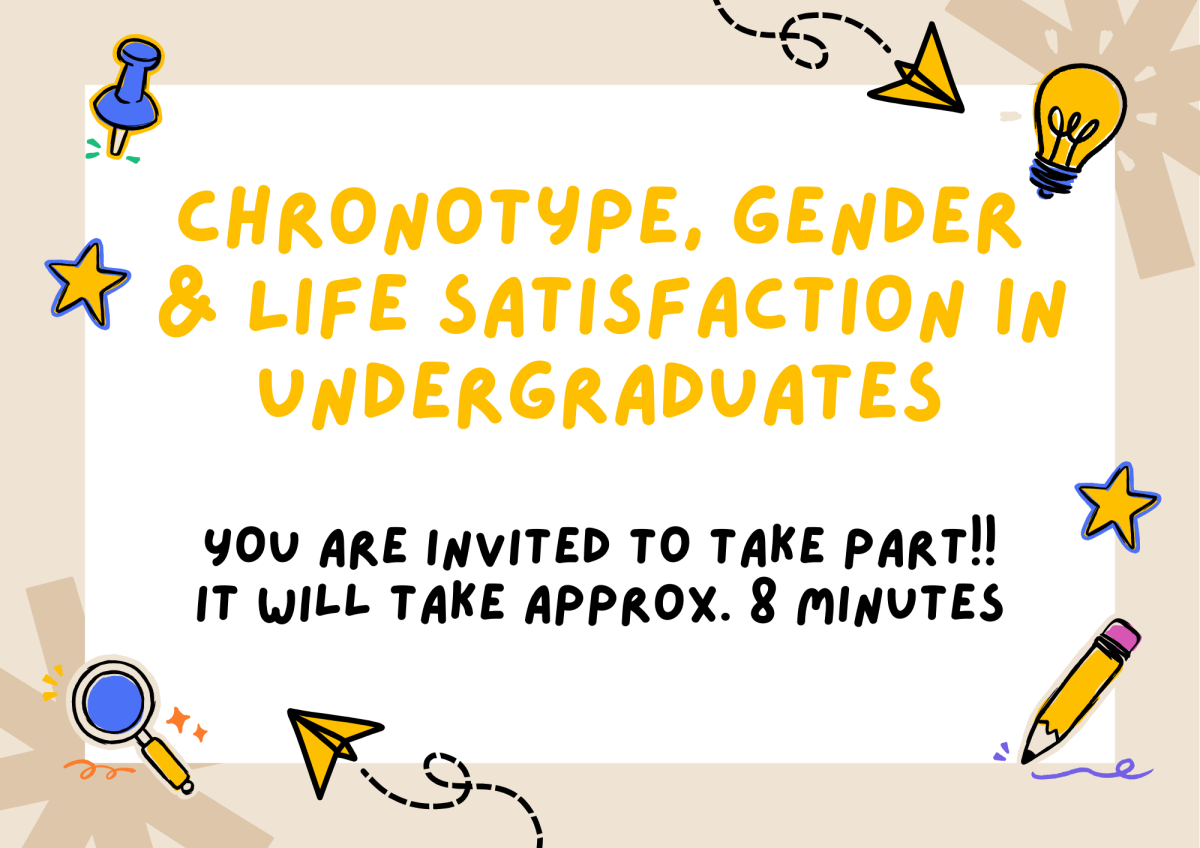
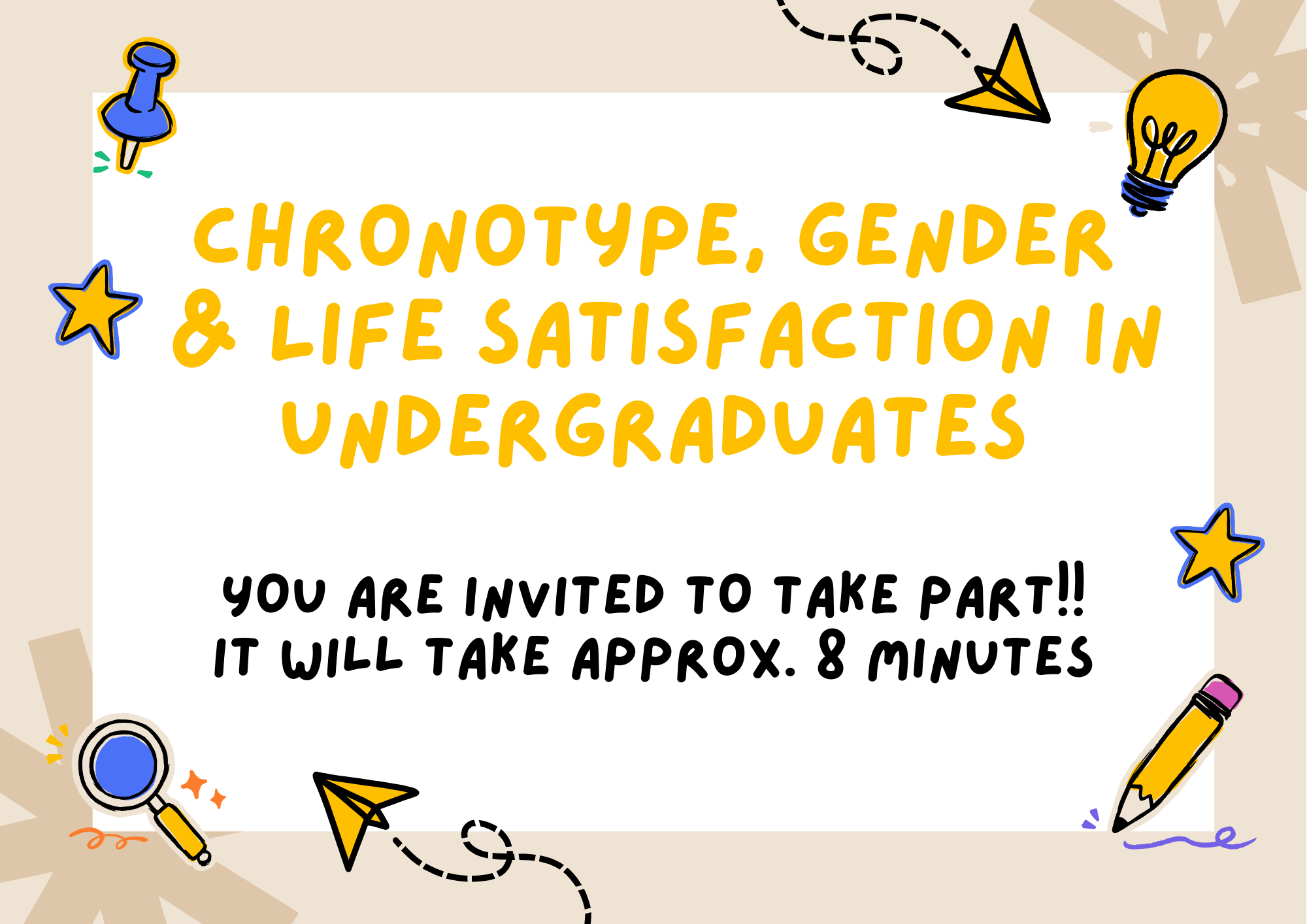
This project aimed to explore how chronotype and gender relate to life satisfaction in undergraduate students. Specifically, it investigated whether life satisfaction scores differed based on chronotype group (morning, intermediate, evening), gender (male, female), and the interaction between the two. The study addressed the following research questions: 1) Is there a significant relationship between chronotype and life satisfaction in university students? 2) Does gender moderate the relationship between chronotype and life satisfaction? It was hypothesised that both chronotype and gender would significantly affect life satisfaction, and that an interaction effect would also be present.
The project investigated whether chronotype and gender influenced life satisfaction in undergraduate students. Findings revealed no statistically significant differences in life satisfaction between chronotype groups (morning, intermediate, evening) or between male and female students. Additionally, no interaction effect was found between gender and chronotype on life satisfaction. While these results contrast with some prior international studies, they align with recent research suggesting that the relationship between chronotype and well-being may be more complex and context-dependent. Descriptive statistics indicated that morning types reported slightly higher life satisfaction scores, but the group was notably underrepresented (n = 6). The findings contribute to the under-researched area of chronotype and subjective well-being in Irish student populations and suggest a need for future studies with larger, more balanced samples. Moreover, the study supports calls for more flexible academic structures and targeted student support services that consider chronobiological differences.

I am a final-year Applied Psychology student with a strong interest in mental health, human behaviour and clinical psychology. I aim to pursue a career in psychotherapy, driven by my passion for the emotional well-being of others. My academic journey includes skills in areas such as developmental psychology, forensic psychology, neuroscience and educational psychology, along with rigorous studies in research methods and various other modules. I also gained valuable experience carrying out my placement in a youth organisation, where I enjoyed building connections with young people. I’m committed to promoting psychological well-being through evidence-based, compassionate practice.


